Each Student to World online course includes both text-based and video-based curriculum options. Both versions have the same content, so individual students can choose the method that works best for them.
Everyday Best Self
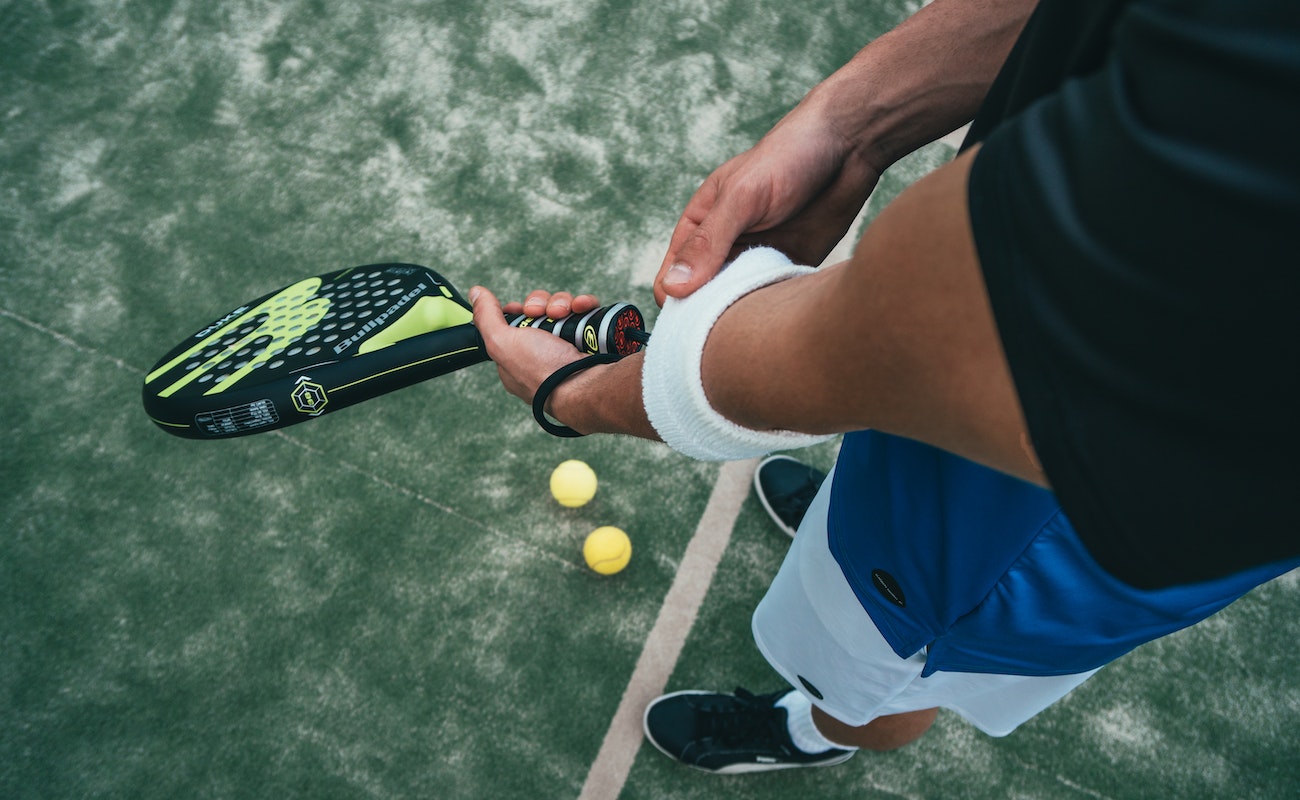
Take a moment to reflect on the role sports play in your life. Think about your relationship to sports by determining whether you are:
- A team player
- A watcher
- An enthusiast
- Or completely uninterested!
Regardless of what your relationship to sports looks like, it’s likely that it has some effect on your identity. This is because whether or not you participate in any kind of sports, they are everywhere! Thus, whether you watch or play, or even if you don’t participate at all, sports can have an impact on your life and can be a way for you to reflect on your best self.
How does your relationship to sports connect to your best self?
Around the world, sports take on several forms and serve different purposes. Athletics can improve the health and well-being of individuals, contribute to their empowerment, help them destress, and provide economic and academic opportunities. However, sports can also encourage a mindset of exclusion, extreme competition, idealized body images and overall stress. Sports can often create a sense of winners and losers, but even winning can be complicated.
Our individual stories about our relationship to sports matter.
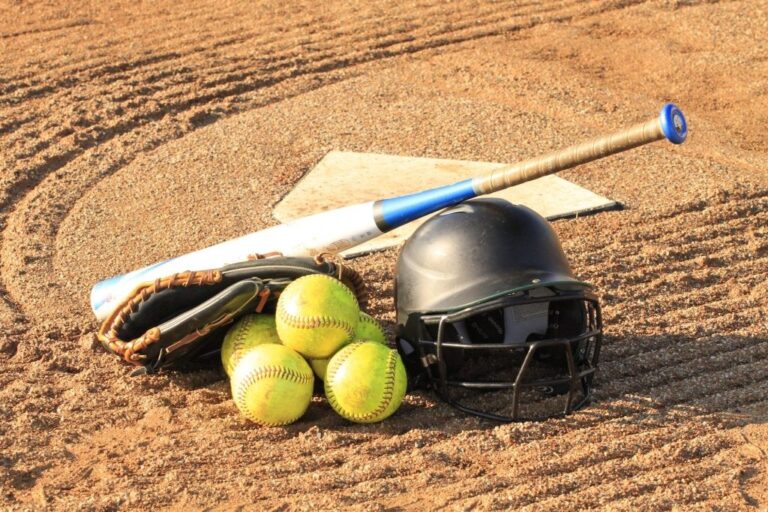
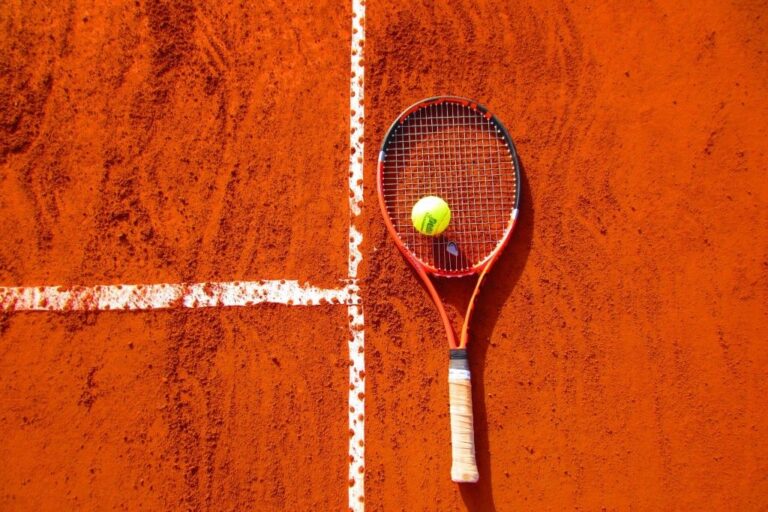
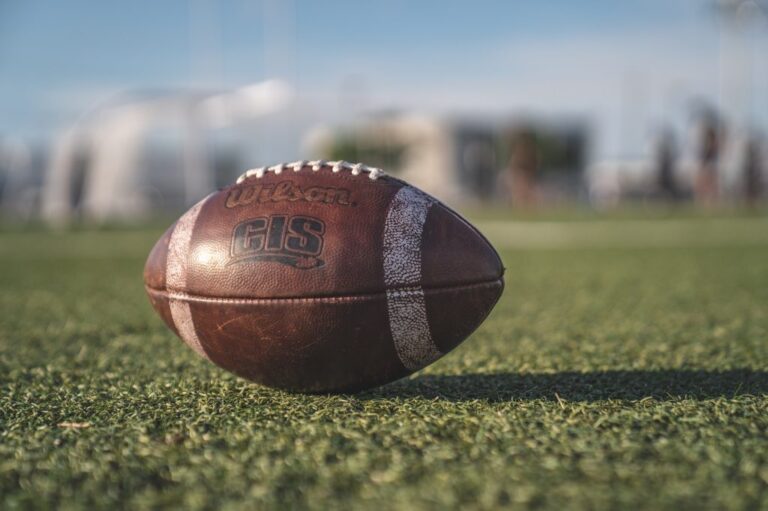
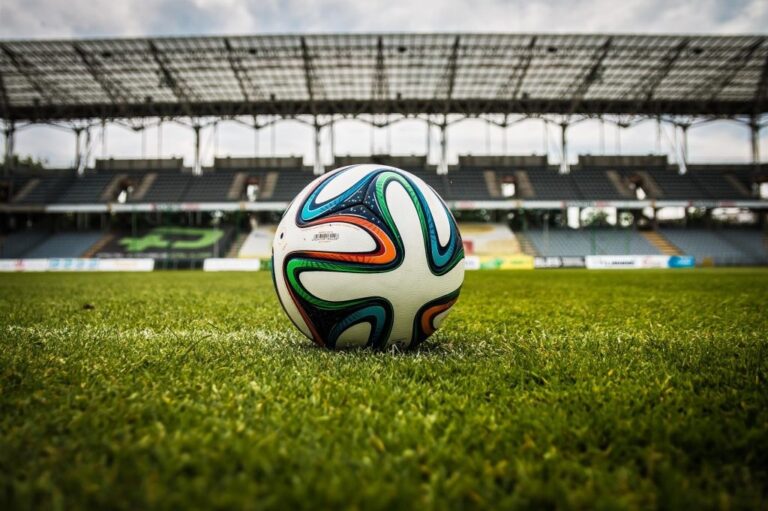
Check out 15 year old Katso’s story of representing his home country of South Africa in international martial arts competitions. See what you think about his journey.
For 7 years of my life I was a martial artist. It demanded a lot. I needed to be fit, flexible, well built and most importantly strong-willed. I never fell short of its demands. I would work hard everyday in order to keep up with the standards and when I arrived into the competitive scene those standards would raise higher and higher so in response I worked harder and harder.
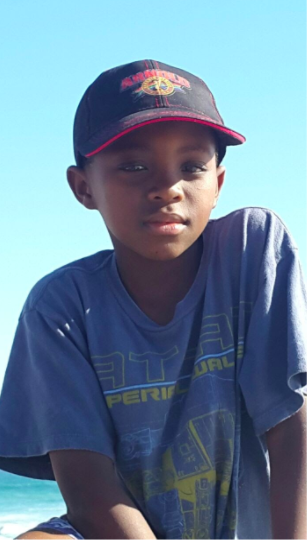
I worked harder because I wanted to be the greatest, I wanted to win, I wanted to prove to the world that I could do it and nothing they said could stop me and I did. Each and every month I became better, faster and stronger than my opponents, eventually I reached a state that many would call the end of their journey, I became a BLACK BELT.
As soon as I became a black belt my hard work did not end. I had just entered a new world, a new beginning. I had to start from scratch. I started remastering each and every technique until each movement was engraved into each and every one of my muscles.
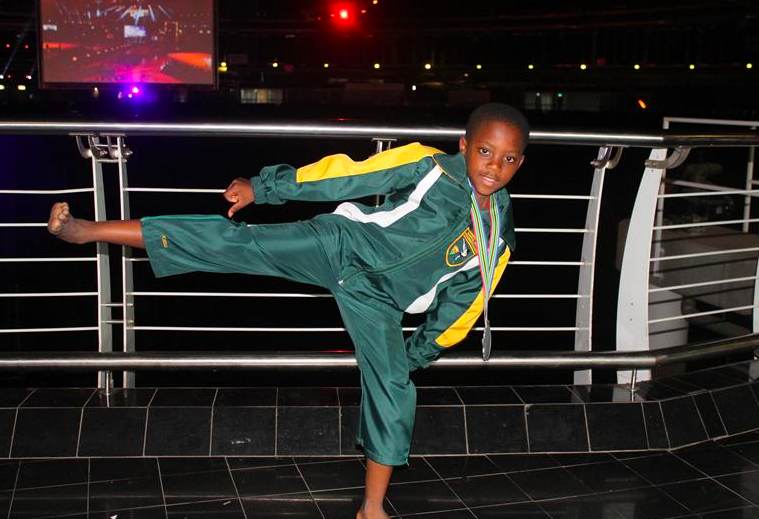
“Were there sacrifices?” Of course.
There were days my body would be in pain or days I was not able to sleep but the sacrifices were worth it. After all, winners focus on winning and that was the mindset I had. I was selected to represent my country. I was one of the best of the best, or so I thought.
Looking at the other representatives I realized that my hard work was not enough to compete against them. My hard work could not compare their talent, their skill, or their strength.
I tried to break the barrier, I pushed myself beyond my limit, I pushed myself to the point where I knew that I could now compete against the greatest.
At the time I was unaware that there would be consequences for breaking that barrier and when I finally got to represent my country and myself on the international scene, everything came crumbling down in front of my eyes. I did not win. I was not the greatest. I couldn’t even prove myself or make my mark. I was drained, I was at an all time low. My mind couldn’t handle the strain anymore, my body couldn’t handle the strain either. I overworked myself. My back gave out, my hips gave out, my knees gave out. I was completely useless. I had to quit. What use was I?
But then I slowly began to pick myself up. I began to recover. I began to change into a different person. My attitude changed. I was more motivated than I had ever been. I was more motivated to prove myself.
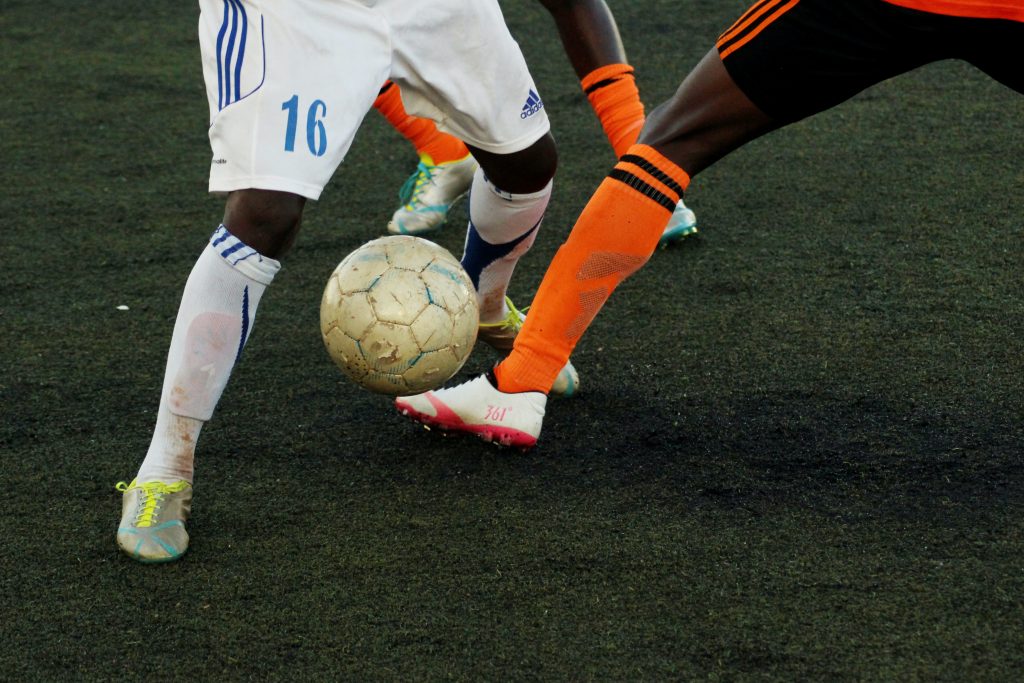
I restarted my journey. But restarting my journey did not mean I continued participating and competing in martial arts. I had found a new passion and that passion was football (soccer). That passion helped create bonds with my new teammates. Having teammates taught me that I didn’t have to do everything alone. Now I have something new to work towards. I have to be accountable. I have a role to play. I have to work even harder so that I never let my teammates down. My hard work in martial arts and in football have paid off because I can influence and motivate my teammates. Together we have become better, faster, and stronger.
Now, think about your own experiences with sports and athletic activities.
- What kinds of feelings come to mind?
- What does it mean to be an athlete to you?
- What does it mean to win?
- What does it mean to lose?
About This Course
This course was created by our unique, youth-led global internship program. Visit the course page to view learning objectives, standards alignments, content formats, and more.
Watch a Video of Module 1 Part 1
As part of Global Nomads Group’s commitment to accessibility, all Student to World video courses include American Sign Language interpretation and Closed Captioning in English and Arabic.
Key Vocabulary
Individual. n. A single person.
Process. n. A series of actions or steps taken in order to achieve a particular goal.
Register
Teachers, Educators, & Leaders
Create an account and invite students or youth participants.
Students
If your teacher or group facilitator gave you a code.
Independent Learners
Take a course on your own.
Already have an account?
Stella, Youth from the United States
“I have a very confusing relationship with sports. I love to play the sports I do, volleyball and basketball, but sometimes the competition of everything brings out my negative energy. I am really hard on myself when I make mistakes and sometimes it gets to the point where I don’t know how to have fun because of how stressed out I am about messing up. I also am very competitive with even my own teammates and when they do better than me I just get down on myself rather than celebrating their successes. I do try my best to block out that negativity but sometimes in really stressful situations, it gets the best of me.”
Stella, Youth from the United States
“I have a very confusing relationship with sports. I love to play the sports I do, volleyball and basketball, but sometimes the competition of everything brings out my negative energy. I am really hard on myself when I make mistakes and sometimes it gets to the point where I don’t know how to have fun because of how stressed out I am about messing up. I also am very competitive with even my own teammates and when they do better than me I just get down on myself rather than celebrating their successes. I do try my best to block out that negativity but sometimes in really stressful situations, it gets the best of me.”
What are all the roles people play related to sports?
The way our communities approach sports makes a difference. We might place a high value on athletics and competition. We might all gather to support our local teams. We might have athlete heroes who we look up to and follow on social media. For some of us, sports might provide a path toward economic opportunities like scholarships or travel.
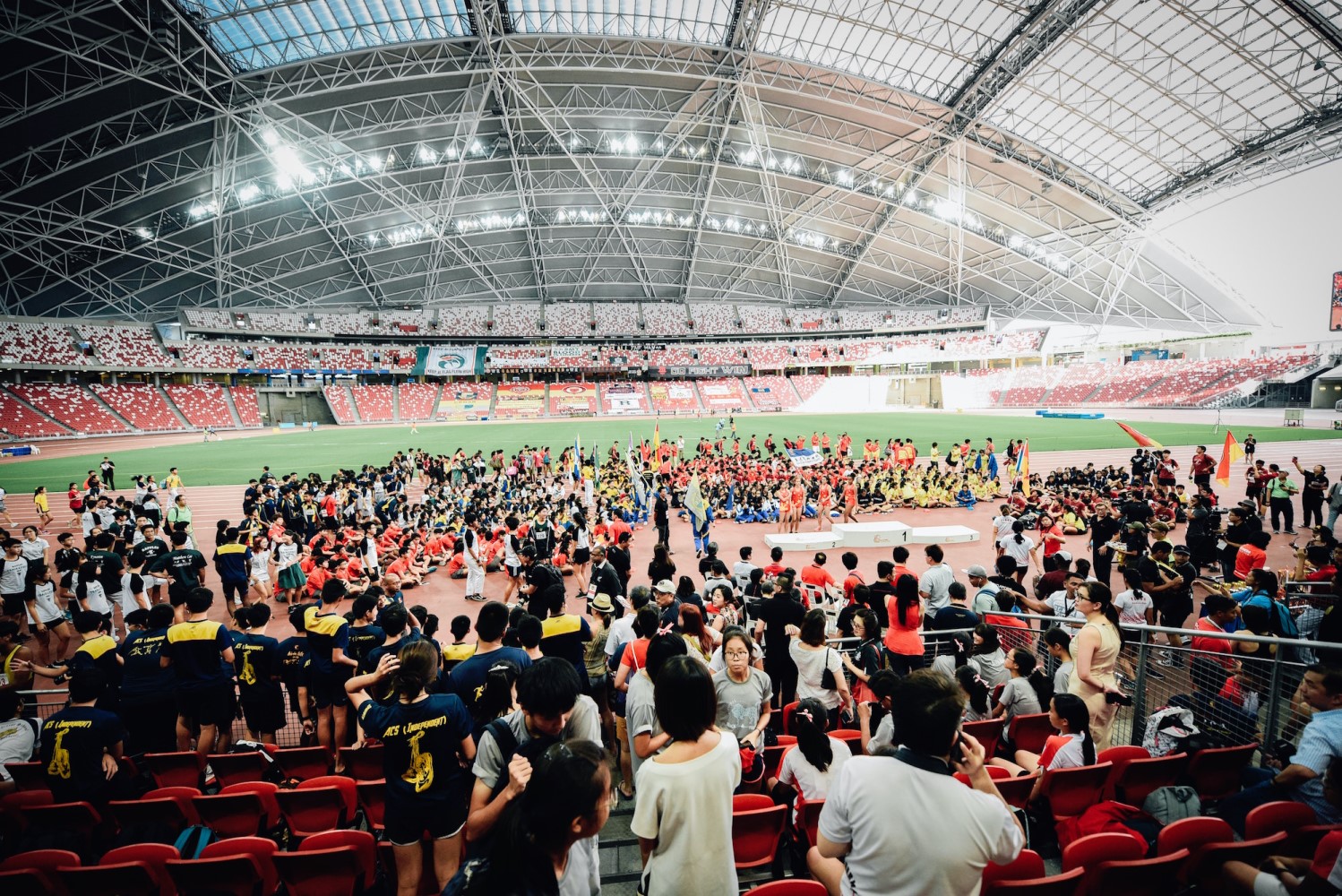
In most sports, lots of people work together to accomplish a joint goal, whether or not they all play or compete. Each member of a team uses their own personal skills to support their teammates in order for the group to succeed. In team and individual sports, coaches bring the teams together and help all athletes improve their skills and their belief in themselves.
As Grant Downie, the Head of Performance at Manchester City FC Academy, says, “You want players to have an ego. To go in front of fifty or sixty thousand people and express yourself, you need to have a strong sense of self-belief.”
Sports fans can boost the energy of the players by cheering them on. Sports can make us feel like we belong to something bigger than ourselves, like we are part of a community.
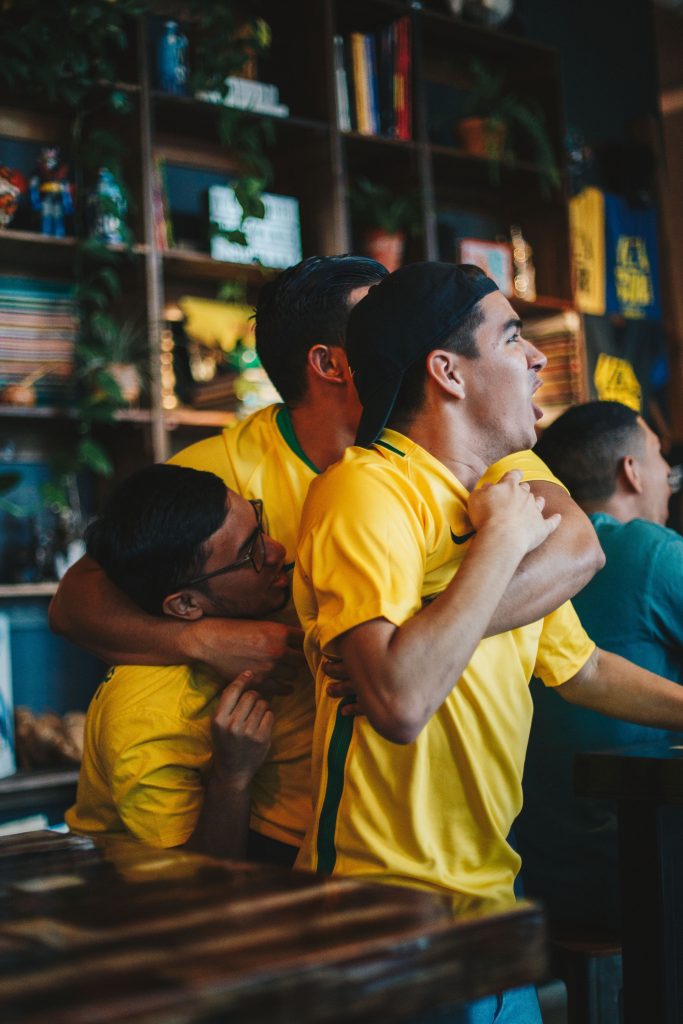
Feeling Excluded
But, sports can also make people feel excluded.
Sometimes the focus on winning, the expected body types of athletes, the injuries or disabilities we may have, and our commitments to other aspects of our lives like our academics or other interests might make us feel excluded from sports in our communities.
In our social media feeds we might see sports represented by specific athletes, teams or commentators. Although social media has helped people from around the world to connect with each other and have access to a wide range of information and facts, it’s undoubtedly a reason for a lot of people’s struggles, including the way we view ourselves as human beings.
Every morning, we wake up and look at ourselves in the mirror. Do we compare ourselves to the athletes on our social media feeds? How does that comparison make us feel?
Story of Self
Lecturer and community organizer Marshall Ganz has a framework we can use to start this process of becoming our best selves together as global peers. We begin with our own stories as Public Narratives. Sharing our stories publicly is a first step toward collective action. In telling our stories, we become leaders who motivate others to join us in creating positive change. We start with our own stories, the stories of self.
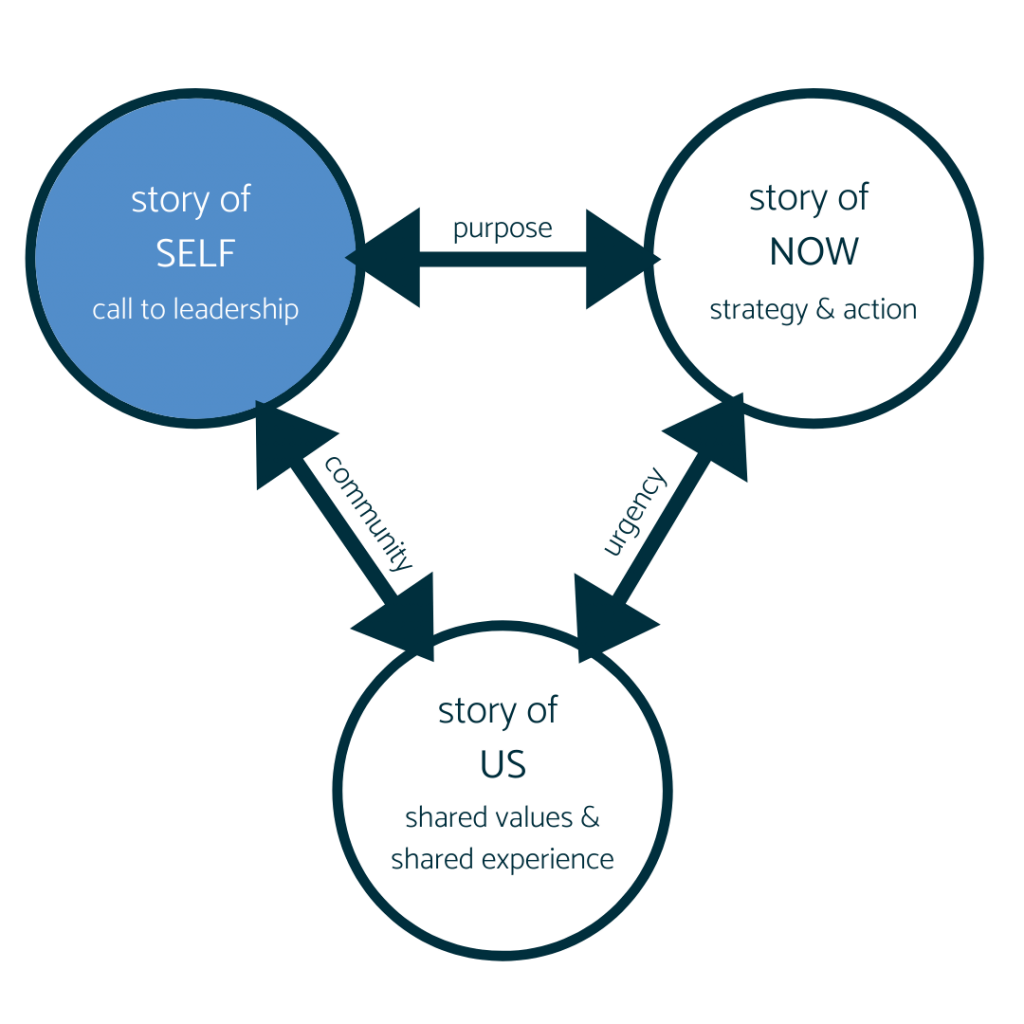
Three circles are positioned in an upside-down triangle. The circle on the top left reads “Story of Self: call to leadership,” and the circle on the top right reads “Story of Now: strategy and action.” Between those circles is a blue arrow pointing in both directions with the word “Purpose.” The circle at the bottom center reads “Story of Us: shared values and shared experience”. A blue arrow pointing in both directions connects the bottom circle with the top left circle and reads “Community.” A blue arrow pointing in both directions connects the bottom circle with the top right circle and reads “Urgency.”
Suday, Youth from South Africa
“Sports to me has played a big part in building my self confidence. At school when I play soccer it motivates me to tackle a player or dribble past someone because it gives me the confidence that I can do it. Playing sports made me excited to go play with my friend and it was also a way I connected with them and we had good moments together.”
Suday, Youth from South Africa
“Sports to me has played a big part in building my self confidence. At school when I play soccer it motivates me to tackle a player or dribble past someone because it gives me the confidence that I can do it. Playing sports made me excited to go play with my friend and it was also a way I connected with them and we had good moments together.”
Watch how youth in different parts of the world share their stories of self, describing the relationship between sports and their best selves.
Sports and our best selves
Whether we have a positive or negative relationship with sports, thinking about the way we feel about sports can make us our best selves! Think about it: Noor learned that her best self didn’t align with the competitive aspect of sports. But for Stella, sports helped her become her best self by giving her a place to destress and goals to focus on. And Suday discovered his best self by becoming a photographer for the swim team, keeping him connected to sports but allowing him to prioritize school.
Here’s a table showing how sports positively and negatively impacted Noor, Stella, and Suday.
| Negative | Positive |
|---|---|
| Conflict with values | Becoming disciplined |
| Become unkind | Working hard |
| Lose focus on school | Motivated to achieve goals |
| Focus too much on winning | Becoming a role model |
Remember, sports does not determine how much value we have. Everyone has equal value regardless of their relationship to sports.
You’re ready to explore…
Now that you understand the ways that sports impact peoples’ lives, you’re ready to explore perspectives about sports from around the world. Imagine you’re traveling to other countries to hear what other young people have to say about their relationship to sports and how it’s impacted their identity. Their stories and more are waiting for you on the next page.
To explore stories and resources, register for this course!
Register
Teachers, Educators, & Leaders
Create an account and invite students or youth participants.
Students
If your teacher or group facilitator gave you a code.
Independent Learners
Take a course on your own.
Already have an account?
About This Course
This course was created by our unique, youth-led global internship program. Visit the course page to view learning objectives, standards alignments, content formats, and more.
Watch a Video of Module 1 Part 1
As part of Global Nomads Group’s commitment to accessibility, all Student to World video courses include American Sign Language interpretation and Closed Captioning in English and Arabic.
Key Vocabulary
Individual. n. A single person.
Process. n. A series of actions or steps taken in order to achieve a particular goal.
Register
Teachers, Educators, & Leaders
Create an account and invite students or youth participants.
Students
If your teacher or group facilitator gave you a code.
Independent Learners
Take a course on your own.

